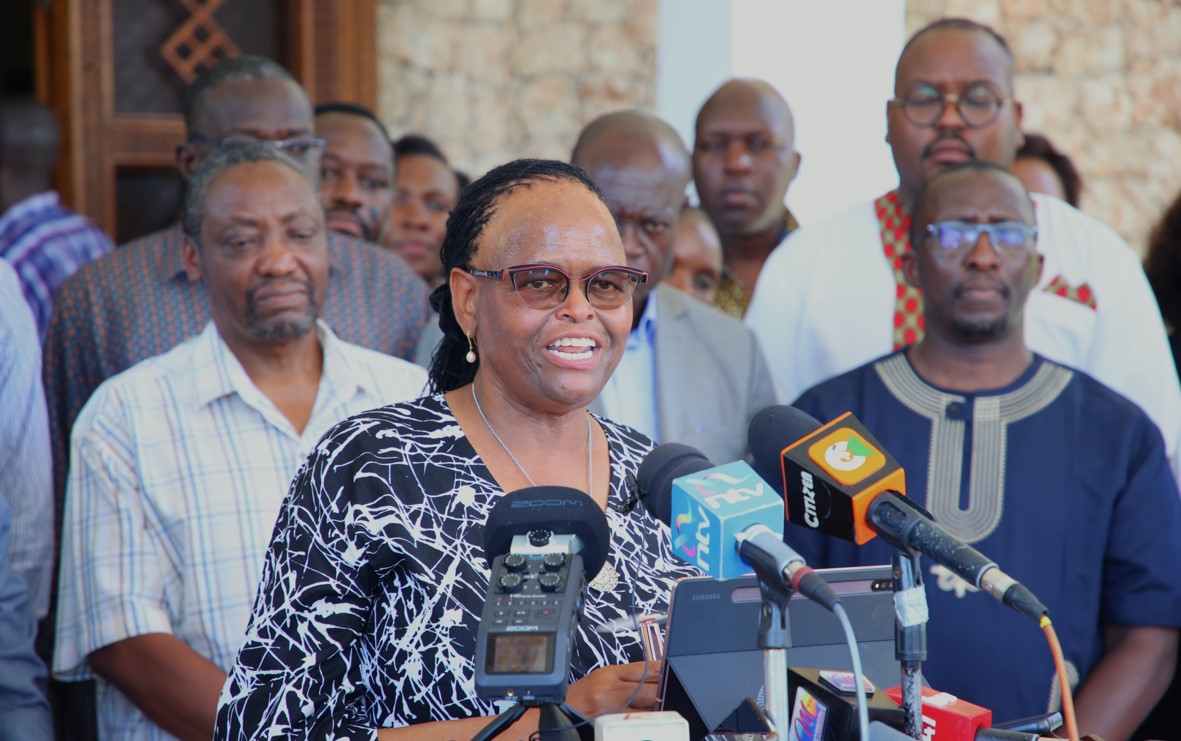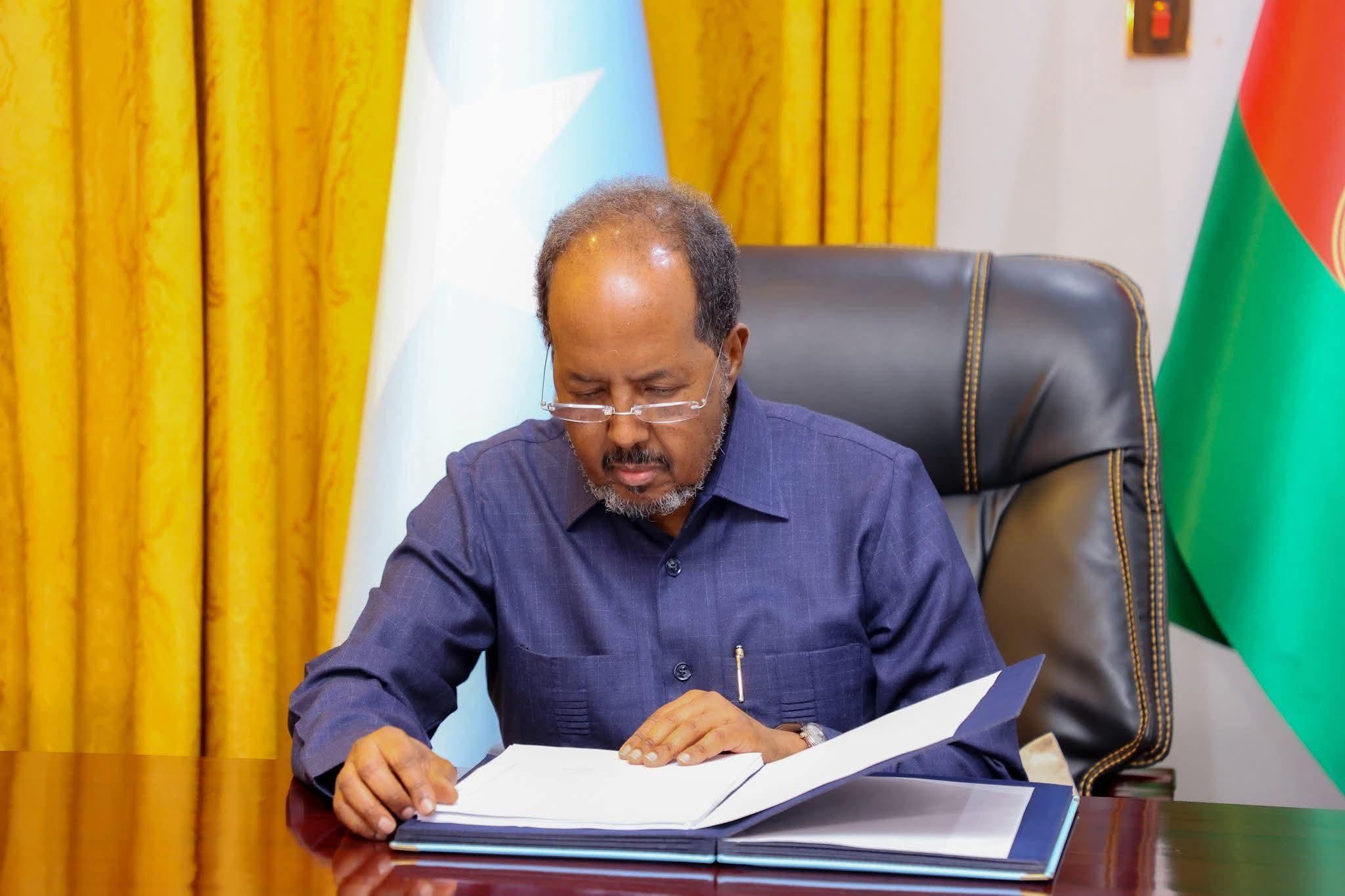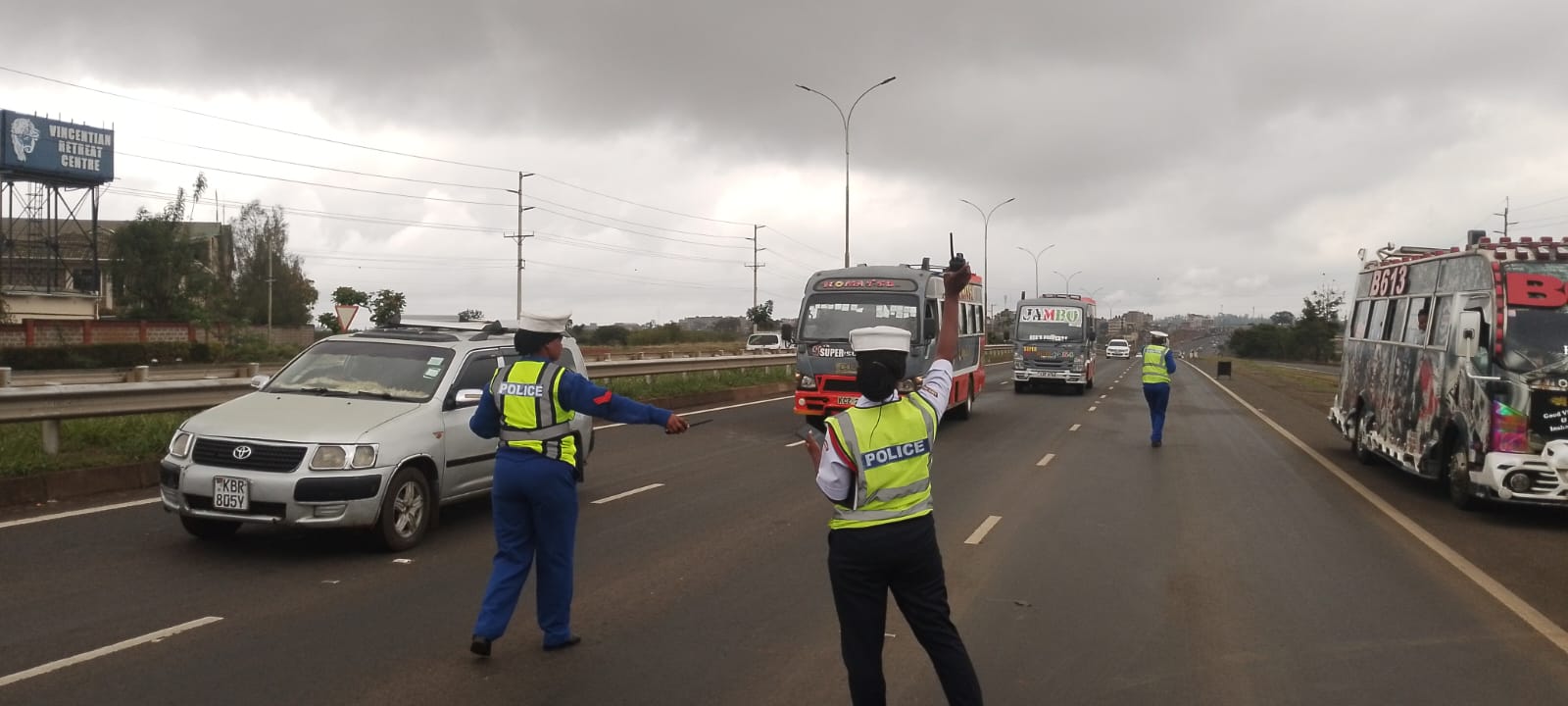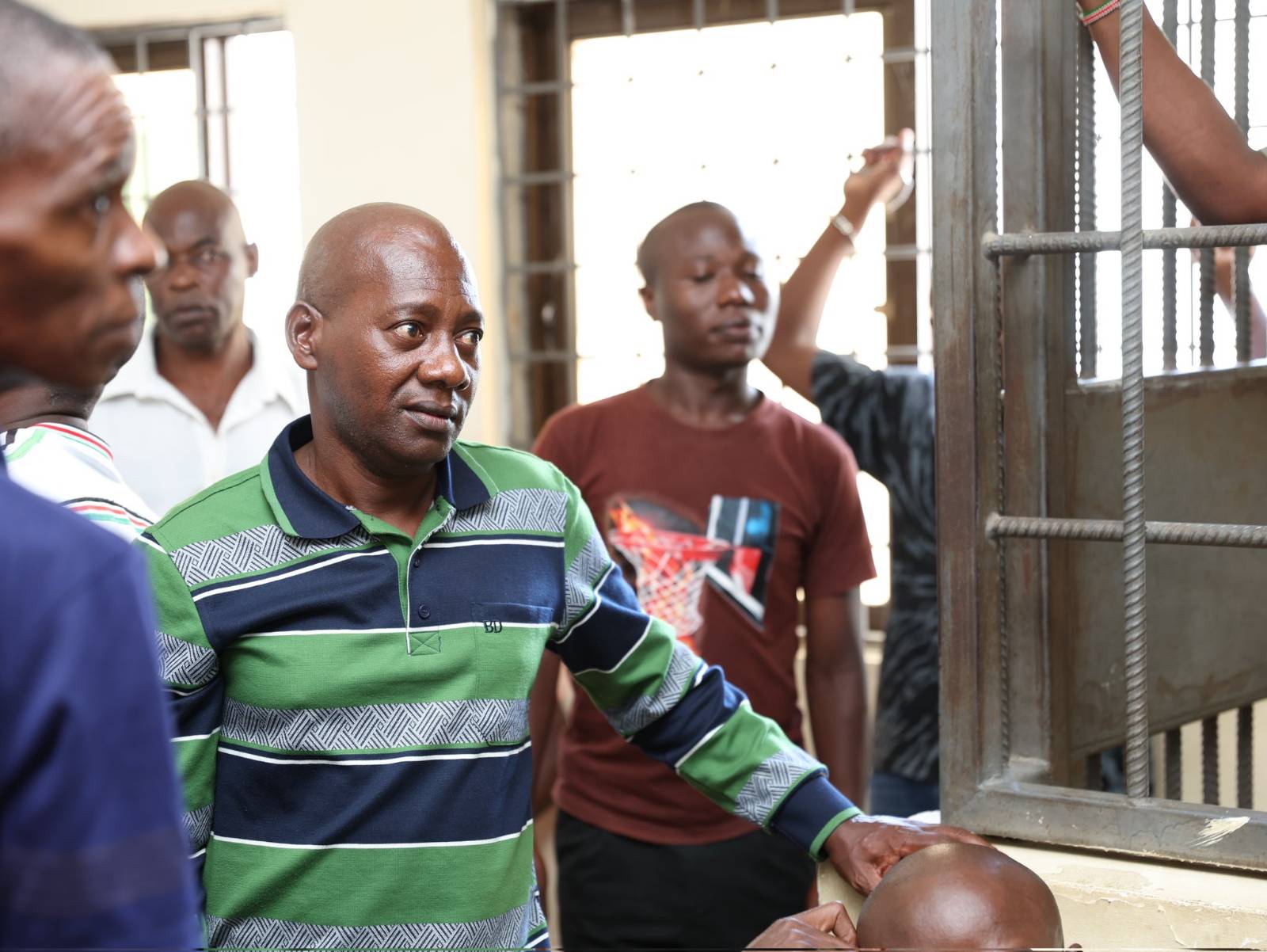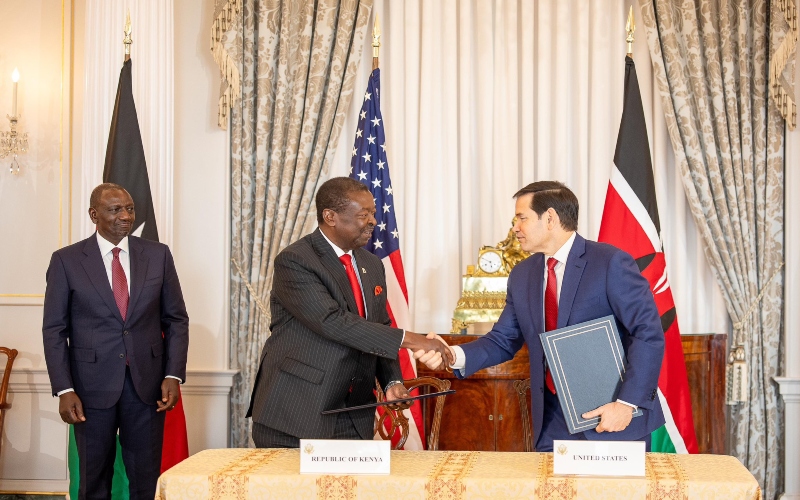IGAD convenes experts' forum to tackle migration, urban growth challenges
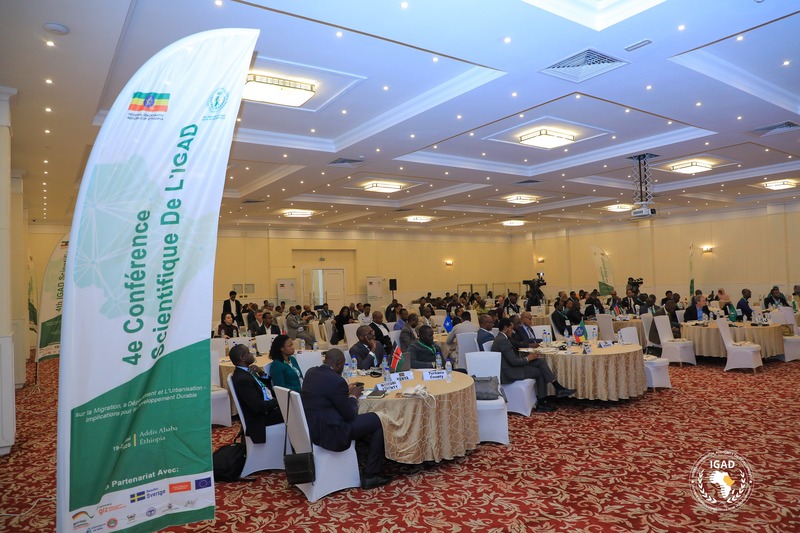
The conference brings together researchers, policymakers, civil society organisations, development partners and government representatives from across the IGAD region and beyond to examine the growing interlinkages between human mobility and urban transformation.
The Intergovernmental Authority on Development (IGAD), in collaboration with the Ethiopian government, has officially opened its 4th Scientific Conference on Migration, Displacement and Urbanisation in Addis Ababa.
The three-day event aims to deepen understanding and foster solutions that promote sustainable development across the region.
More To Read
- Peace on paper, pain in reality: Tigray’s forgotten suffering, struggle for justice
- Kenya urges stronger regional cooperation as transport corridors fuel disease risks across East Africa
- Ethiopia blasts Egypt for escalating hostile rhetoric and rejecting dialogue over Nile waters, GERD
- Kenyan journalists celebrate climate reporting wins at IGAD Media Awards 2025
- IGAD ministers renew regional pact on refugees as Kenya demands fair burden‑sharing
- Kenya’s refugee population hits 860,000 as State pushes integration plan
The conference brings together researchers, policymakers, civil society organisations, development partners and government representatives from across the IGAD region and beyond to examine the growing interlinkages between human mobility and urban transformation.
Amid rising displacement, rapid urbanisation and complex migration patterns driven by conflict, climate shocks, economic pressures, and demographic change, the conference provides a timely platform for dialogue and evidence-sharing.
Participants will engage around five strategic sub-themes, including: Drivers and Root Causes, Urban Governance and Policy, Socio-Economic Integration, Financing, Investment and Innovation, and Data and Evidence for Policy and Planning.
Speaking at the opening on behalf of the Executive Secretary, IGAD Head of Mission to the Federal Democratic Republic of Ethiopia, Abebaw Belachew, emphasised IGAD’s commitment to promoting research-informed, people-centred policies that respond to the evolving realities of the region.
He said the outcomes of the conference are expected to inform national and regional frameworks, strengthen policy coherence and contribute to the achievement of the Sustainable Development Goals (SDGs).
“This conference provides a vital regional platform for evidence-based dialogue, interdisciplinary collaboration, and innovation. It presents scientific solutions for filling the policy-implementation gap by connecting research and policy to inform decision-making. It also allows for stronger links and establishes networks among our member states, development partners, research and think-tank institutions working in migration and displacement in the region,” Belachew said.
Director General of Refugees and Returnees Service of the Federal Democratic Republic of Ethiopia, Tayiba Hassen Kayo, highlighted the urban challenges caused by displaced populations.
She noted that displaced individuals often arrive with limited resources and face difficulties accessing essential services and finding sustainable livelihoods.
"The rapid influx of displaced populations affects our urban systems, leading to overcrowded settlements, increased poverty, and social unrest. Thus, it demands effective urban planning for managing the impacts of migration and displacement through inclusive policies that address the needs of both migrants and displaced populations and host communities for ensuring sustainable development and social cohesion," Kayo said.
The conference is organised in collaboration with the Government of Sweden, Cities Alliance, Regional Durable Solutions Secretariat (ReDSS), and the IGAD Universities Forum. It builds on previous editions and highlights the central role of knowledge generation and regional cooperation in shaping inclusive, sustainable and resilient urban futures.
In his opening remarks, Belachew reflected on the historical and ongoing impact of human mobility on cities and societies. He said the movement of people, whether voluntary or forced, has shaped and will continue to shape cities, economies, and societies throughout history, and the IGAD region is not an exception.
"The scale, speed and complexity of migration and displacement, combined with rapid urbanisation, present us with opportunities and challenges,” he said.
He elaborated that unemployment or lack of decent work, deteriorating political, socio-economic and environmental conditions, armed conflict, insecurity and poverty remain significant root causes and drivers of migration and forced displacement in the IGAD region. He noted that cities and towns are on the frontlines of these dynamics, often absorbing large populations under immense pressure, while striving to ensure social cohesion, service delivery and sustainable development.
“IGAD, as one of the key Regional Economic Communities in Africa, is mandated to promote regional integration and economic development. IGAD supports the efforts of its member states to drive policies that facilitate meaningful participation and representation of migrants and displaced people in policymaking, forging intergenerational conversations and networking opportunities, thus fostering societal resilience in the region,” Belachew added.
He emphasised that the conference provides a vital regional platform for evidence-based dialogue, interdisciplinary collaboration, and innovation.
“It presents scientific solutions for filling the policy-implementation gap by connecting research and policy to inform decision making. It also allows for stronger links and establishes networks among our member states, development partners, research and think-tank institutions, working in migration and displacement in the region," he said.
The gathering brings together a unique and critical blend of expertise: government institutions that lead policy and implementation, researchers from the IGAD region who provide data-driven insights, and development partners who support innovation, capacity, and resources. Their collective knowledge and commitment are essential to shaping inclusive, evidence-based strategies that respond not only to immediate needs but also to long-term transformation.
Since 2018, IGAD has organised a series of conferences covering forced displacement and mixed migration, human mobility during Covid-19, inclusion, and social cohesion. The fourth edition places emphasis on the linkages between migration, displacement and urbanisation to highlight dynamics in urban areas and cities.
The selected research papers to be presented during the conference are expected to offer insights and recommendations for evidence-based programme interventions and policy recommendations to IGAD and its Member States. These will focus on improving drivers and root causes, urban management and policy formulation, socio-economic integration, financing, and data management.
Belachew also noted that policymakers and partners will share experiences on good practices, challenges and lessons drawn from the IGAD region.
“To have mayors with academia in one platform provides a unique opportunity for interaction that will also enable us to get to know each other and build networks for continuous knowledge exchange," he said.
He called for the conference to be a space for rigorous dialogue where knowledge and experiences are shared and joint action to support stronger equity and resilience for the citizens of the region is developed.
Top Stories Today

